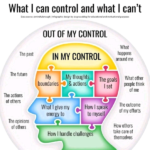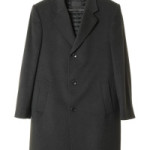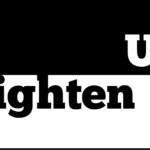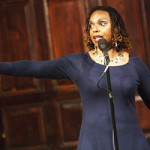
I am posting Frank Bruni’s New York Times column about how we approach hate.
He offers grey to those of us who think in black and white–reminding us that our point of view can 1) bring people together or 2) drive people apart.
Broadening the topic to the world at large, I know I participate in discussions that are “too limited,” and I cop to being naive at times. How could I not be? It is impossible to absorb all of the elements of an argument. Critical thinking is hard.
However, admitting one’s point of view is vulnerable is a step toward disagreeing more and hating less.
Frank Bruni
New York Times
With part of a recent column of mine, I disappointed myself, and maybe I disappointed some of you. I don’t get a do-over, but I do have this newsletter, in which I can own up to my error and make amends.
I’m referring to “Hate Is So Much Bigger Than Trump,” which was published a week and a half ago. It reflected on the mass shootings in El Paso and in Pittsburgh and made the point that the kind of hatred that motivated the gunmen predates the current president and will survive him.
“We’re having a discussion too limited — and indulging a mind-set woefully naïve — when we make those massacres principally about him,” I observed. “He’s a gardener tilling soil that’s all too fertile.” I added that “while gentler words from the White House and a better president may affect how much grows in it and how tall, the ugliness will always take root and always flower.”
I got that much right, by which I mean that it came out the way I intended. But later in the column, I erred. I noted that while one recent survey showed that 63 percent of Americans now support same-sex marriage,” that leaves 37 percent who don’t and who “can’t bear the likes of me. They will be around for decades to come. So will their hate.”
In response to that, one reader, Thomas D’Albro of Wappingers Falls, N.Y., wrote to me: “I am part of that 37% of Americans who do not agree with same-sex marriage, based on an amalgam of philosophical, theological, biblical and socio-cultural reasons. But I do not hate you; I disagree with you. Unfortunately, in the hyperpolarized world of today, the distinction between the two is often lost; you’re either for me or against me. I disagree with you even though I respect you as a fellow traveler through human history. I disagree with you but I respect the choices you make for your life based on your life experience and the dictates of your own conscience. . . . I also pray that you will continue to write your frequently insightful and thought-provoking opinion pieces.”
D’Albro is right. There’s a big, important distinction between disagreement and hate, between his courteous objection to my views and the two emails from readers that I cited at the beginning of that column, one of which said that I had serious eyesight problems because my homosexuality offended God and the other of which taunted me by predicting that I’d have an agonizing afterlife. I painted the 37 percent with much too broad a brush.
I was trying to say that despite remarkable progress toward L.G.B.T. equality over recent decades, there will never cease to be a contingent of Americans who demonize us and who do so out of rank bigotry and pure hate. I was sharing my conviction that some people’s prejudices are vicious, beyond the reach of reason and impervious to education.
The 37 percent certainly includes those people. They’re a subgroup of it. But they’re not the whole group. I clumsily suggested otherwise and am miffed at myself because, as those of you who read me regularly know, I worry about and push back against exactly what D’Albro brought up: the absence of nuance in our political conversations; the triumph of a partisanship that puts everything in stark categories (villain, victim, good, evil); the hastily drawn battle lines; the impulse to impugn rather than understand.
Hillary Clinton briefly engaged in that when, in 2016, she infamously mentioned the “basket of deplorables,” and I and many others took her to task. I remember thinking in particular that her “deplorables” possibly included an elderly woman in the Bible Belt who inveighed against same-sex marriage. But given that woman’s rearing, her environment, her age and how new to her the concept of marriage equality was, how likely was she to feel and act any other way? Clinton herself didn’t officially sign on to marriage equality until 2013. At least a few “deplorables” were surely laggards. They just needed more time.
I stand by my column’s assertion that hate is tenacious and never entirely ineradicable. But I hereby remind myself, and urge you, to apply that word and other, equally charged ones with care. If we want them to have their full power when they’re warranted, we mustn’t use them when they’re not. And if our goal is to bring people together, we mustn’t casually and sloppily deploy a vocabulary that drives them apart.
Feeling the Love
More readers got in touch with me about that column than about any other since the one in February 2018 that discussed my compromised eyesight, and that response demonstrated that what I wrote about was only part of the picture. I described the pervasiveness of hate. These missives demonstrated the pervasiveness of love.
There were more than 600 of them beyond the comments on the column itself, sent to me directly or via this newsletter’s inbox or through our Letters to the Editor department or as comments on my Facebook page. They were striking not just in their volume but also in their similarity to one another: their palpable tenderness, their transcendent generosity. Sure, these writers wanted to, and did, declare their opposition to the bigots of the world. Absolutely, they lamented people’s capacity for cruelty.
But more than that, they expressed sorrow that — as I mentioned in the column — I’m routinely on the receiving end of so much nastiness. They chided themselves for never having countered that by sending me emails and messages of affirmation. And they said that they wanted to optimize the chances that on this day, in the wake of this column, my inbox was a pick-me-up, a balm, making me feel valued, making me smile. Was it ever.
So are humans on balance fundamentally good, or does ignorance, pettiness, zeal or tribalism win out in most of them? What about Americans?
Both questions are too big for a newsletter — or, for that matter, a novel — but the latter one keeps coming up these days, largely in connection with support for Trump, who so exuberantly plays the bully and so recklessly exacerbates divisions. I keep saying, writing and believing that this country is better than what he models and exploits; smart people keep saying back to me, “Really?” They ask me whether my refrain, which they hear from many others as well, is an overly selective edit of history, a reassuring delusion.
It’s an edit of history, for sure. But the same is true for any version that doesn’t look at some of the extraordinary good that this country did during and after World War II; that doesn’t take into account how much more welcoming to immigrants than other wealthy nations America has often been; that doesn’t recognize and applaud the many Americans who have fought for and vigorously safeguarded our civil liberties; that doesn’t celebrate the very real meaning of Barack Obama’s election; that doesn’t acknowledge the long — albeit delayed and incomplete — strides toward greater diversity in popular culture that America has made.
Trump is but one character in our nation’s narrative. I will not accept that he’s the defining one.






























